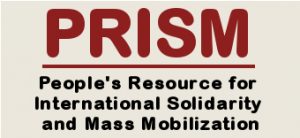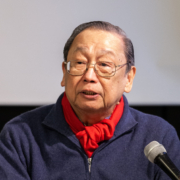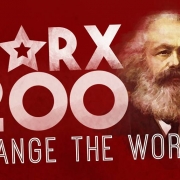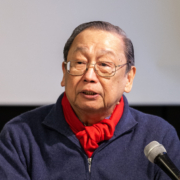Initial Interview on Marx’s “Value, Price and Profit”
The following is the text of an initial interview conducted by the National Democratic Online School with Jose Maria Sison, Emeritus Chairperson of the International League of Peoples’ Struggle, on Marx’s popular pamphlet “Value, Price and Profit”. The interview was posted online and further discussed by Prof. Sison on 24 May 2020, as Episode 2 of the “Marx and Labour Serye [Series] with Tito Jo”. The Marx and Labour Series, organized by Anakbayan Europa, is conducted as an online event broadcast and recorded on Facebook Live. Click here to watch Episode 2.
1. Can you give us a short context of what led Marx to write Value, Price, and Profit?
Jose Maria Sison (JMS): Marx found it necessary to write Value, Price and Profit and address it to the First International Workingmen’s Association in 1865 in order to counter the line of the economist Weston that it was futile and even self-defeating for the workers to demand and get higher wages because these would increase the prices of commodities and would reduce the real value of wages. Such a line would undermine and weaken the trade union movement and the workers’ movement in general.
Marx said that it was wrong for Weston to claim that the value and amount of national production and the productive powers and subsistence needs of the workers are constant. He pointed out that national production and the productive powers of the working class had kept on rising from year to year. But even if these remained constant or stagnant any increase of wages would occur within the limits of the new material values created by the workers themselves . Within such limits, the capitalist would still get the surplus value, even if reduced by the increase of wage.
There may be fluctuations in the prices of commodities that result from the disparities of supply and demand in the market. But in the long run the prices of commodities tend to move towards the value of the commodity in terms of labor power contained in the commodity. In fact, the capitalists offer to the market the commodities at their value and realize their profit by selling the commodities at their value.
2. What is the effect of the increase of wages on the rate of profit of capitalists? Why is the dogma “wages determine the price of commodities” wrong?
JMS: The effect of wage increase is to reduce the surplus value for the capitalist and therefore to lower the rate of profit. The rate of profit is surplus value in proportion to the invested capital. The increase or decrease of the paid labor and the corresponding increase or decrease of surplus occurs within the limits of the total amount of new material values created by the workers. If the wages rise, the workers will improve the level of their subsistence and possibly skills. But the capitalist is sure to get the surplus value that covers his industrial profit, interest payments to the bank and rent to the landlord. If the workers do not fight for wage increase, the capitalist will just continue increasing the surplus value that he gets.
The dogma that “wages determine the price of commodities” is wrong because it presumes that the rise or fall of wages determines the prices of commodities in the market. According to the conditions of supply of and demand for the commodities in the market at various times, the prices of commodities fluctuate but they do so around the value of the commodities determined by the labor power they contain and not by the wages paid by the capitalist to the workers. In the long run, prices settle down or even up at the value of the commodity as determined by socially necessary labor power required to produce them.
3. How, then, is the value of a commodity determined?
JMS: A commodity is produced because it satisfies a human want or necessity and it must have use value as well as exchange value. The value of the commodity is determined at the production site by the amount of labor power that is socially necessary to produce the commodity plus the value transferred from previously congealed labor power in the means of production (factory building, machinery, tools, raw materials and so on). The sum of new values and portions of the previous values in the means of production constitute the total value of the commodity.
4. What is the difference of the Price or “Presyo” with Value or “Halaga”?
JMS: The value of the commodity is something created by labor power. Price is merely the money expression in the market for the value of the commodity that has been pre-determined at the production site. However, the price of a commodity can fluctuate according to the market conditions of supply and demand. But it always gravitates around the value of the commodity that has been created by labor power and ultimately settles at that value by an evenning of the price fluctuations.
5. According to Marx, commodities are sold at their real values and that profits are derived from selling them at their values. What, then, creates profits?
JMS: Profits are derived from the unpaid labor of the workers at the production site. The unpaid labor or surplus value on top of the paid labor or wages is composed mainly of industrial profit plus the interest paid to the bank and rent to the landowner. Commodities are sold in the market at their real values even as the prices fluctuate around said values. There are limits to overpricing and underpricing of commodities. Studies have proven that price increases are eventually countervailed by price decreases, and vice versa.
6. What is the urgent task for the people to push fair wages without inflating the price of the commodities?
JMS: As explained by Marx, fair wages or any increase of wages can only come from the total value of the commodity created by the workers and can only result from some reduction of the surplus value. They do not inflate the market price of the commodities, contrary to the claim of Weston and bourgeois economists. In fact, raising wages of the workers increases their buying power and expands the market.
It is therefore the urgent task of the people to propagate the explanation of Marx and to demand wage increases. They must support the revolutionary party of the proletariat and the trade unions in demanding wage increases and in arousing, organizing and mobilizing the workers for the purpose. By demanding wage increases, the workers are asking for an increase in their share of the value of the commodity that they have created.
In times of business decline, the capitalist is always sure to press down wages. But even in times of business boom, he does not raise the wages unless pressed by the collective demand and actions of the workers and their trade unions. Pressing down the wages of the workers results in increasing the surplus value or profits of the capitalist. It means escalating exploitation, the rate of which you can compute by looking at the proportion of surplus value to paid labor or wages.
7. Isn’t the essence of business to really gain profit so it could expand? How can we redefine the purpose and definition of business then?
JMS: Indeed, in the capitalist system, the capitalist owns the means of production and buys labor power to work on them and make profits by extracting surplus value from the total new material values created by the workers. It is at the production site that the value of the commodity is created by labor power and it is in the market that the capitalist realizes his profit in money form.
The more surplus value or profits that the capitalist can gain, the faster he can accumulate capital and keep on increasing the organic composition of capital, which is the rising proportion of constant capital in the means of production (buildings, machines, tools, raw materials and so on) at the expense of the variable capital for wages. The result is self-defeating for the capitalists because the rate of profit tends to fall and the crisis of overproduction looms in relation to the decreasing wages for the workers that spell their lesser purchasing power and the shrinkage of the market.
8. In a socialist society, how will wages be determined?
JMS: In socialist society, there is no capitalist class that privately owns the means of production and that keeps on increasing its private profit and accumulating capital through the extraction of surplus value. Therefore, any increase of production and productivity means higher wages and a higher standard of living and culture for the workers in accordance with the socialist principle of “from each according to his ability, to each according to his deed”.
The entire society benefits from greater amounts of resources for capital reproduction, expansion of employment and social services (education, health, housing and so on), protection of the environment, more efficient administration, national defense and internal security and so on. All these are beneficial to the workers and the rest of society. It is no longer a capitalist class that profits from the labor power of the workers but it is the entire society.
However, I must clarify that in the case of underdeveloped countries, like semicolonial and semifeudal Philippines , the proletariat and the rest of the people must first win the people’s democratic revolution against imperialism, feudalism and bureaucrat capitalism in order to complete bourgeois-democratic reforms, capture the commanding heights of the economy and begin socialist revolution and construction. There are transition measures undertaken to pave the way for socialism. These can be a subject in another discussion.
9. What do you think are the most important tactics for improving the living standards of workers?
JMS: First of all, it is necessary to build and develop a revolutionary party of the proletariat that is guided by Marxism-Leninism-Maoism, that understands how labor power created previous material values in products for use and exchange and continues to create such values in maintaining and developing the economy and that defines and implements the strategy and tactics of mobilizing and coordinating both the overall and all-round political struggle of the aforesaid party and the economic struggle carried out by the trade union movement in order to raise the wage and living conditions of the workers..
The trade union struggle for higher wages and better wage and living conditions is so much stronger and more effective when combined with the political struggle of the broad masses of the people that are led a by the revolutionary party of the proletariat. The working class is so much inspired to fight for its rights and interests when it knows the revolutionary context and socialist direction of the struggle for immediate economic and social aims. Trade union struggle as merely an economic struggle within the confines of capitalist society falls short of the need for a revolutionary political struggle to overthrow the class dictatorship of the bourgeoisie, end the exploitative capitalist society and establish a socialist society. Building socialism is the historic mission of the proletariat and the rest of the people. ###







Leave a Reply
Want to join the discussion?Feel free to contribute!